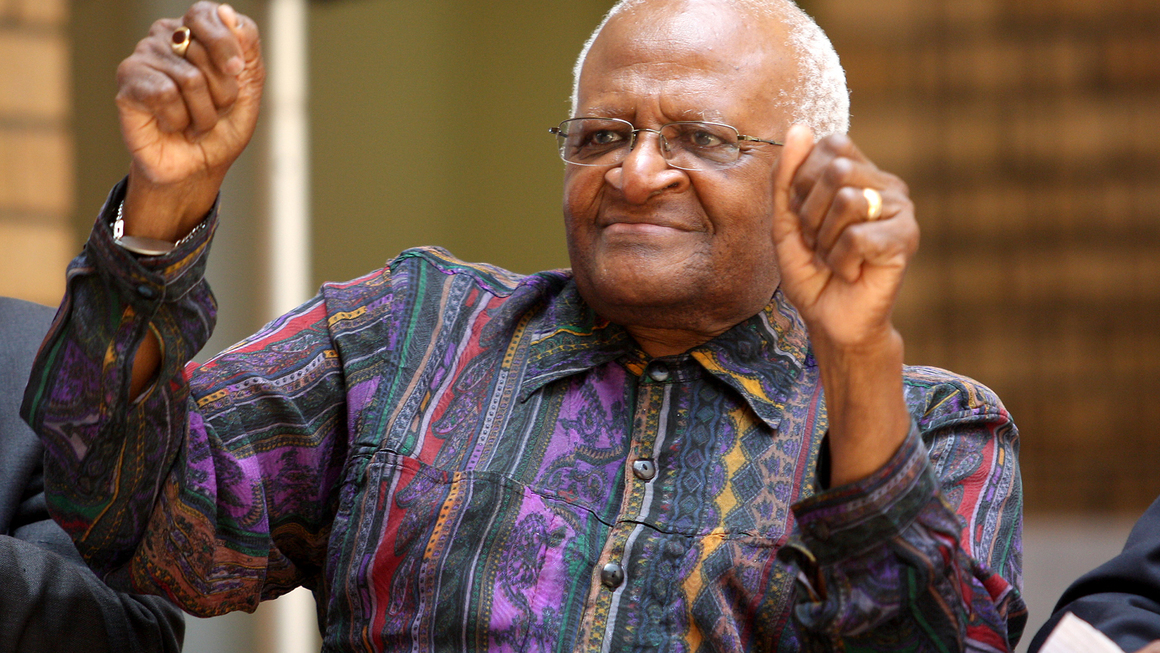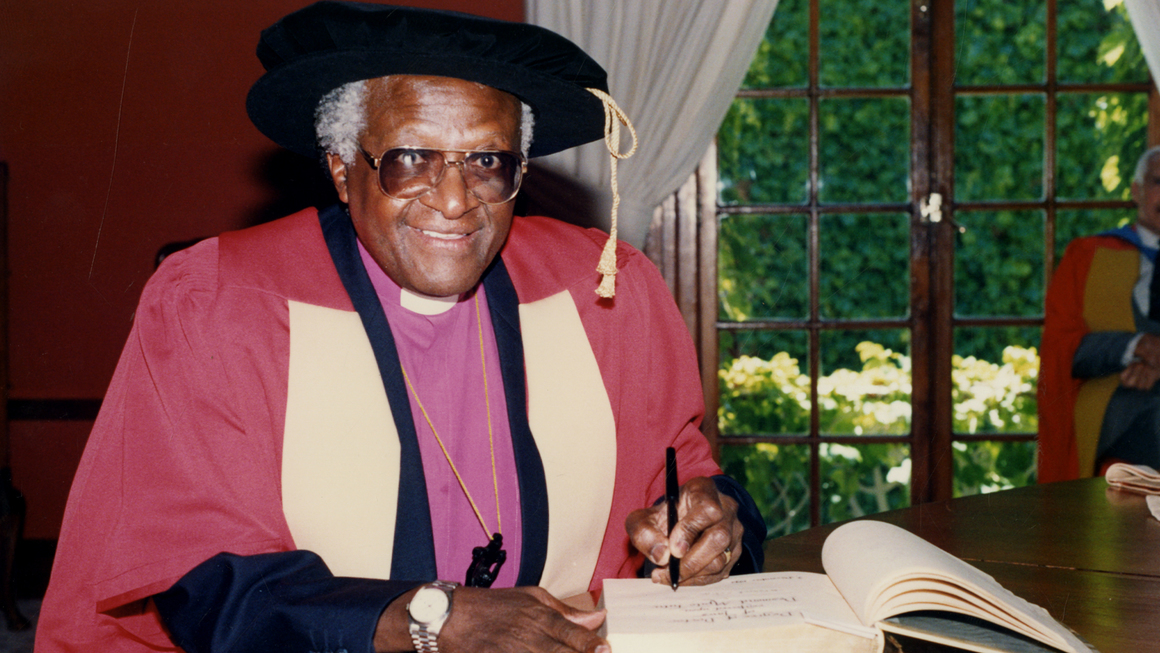Tribute to Archbishop Emeritus Desmond Tutu
26 December 2021 | VC Prof Mamokgethi Phakeng
Dear colleagues and students
Today we say goodbye to a man who taught us the power of joy to fight injustice and evil. As many of us woke up to the sad news on the passing of Emeritus Archbishop Desmond Mpilo Tutu, 90, on Sunday, 26 December 2021, we remember him not only for his firm, principled stand on issues of justice, human rights and democracy. We also remember him for his infectious smile, unflagging sense of humour and especially his demonstration of love for his fellow South Africans.
He taught us to appreciate our own human failings even as we identified ways we need to improve. By sharing his acceptance and love with us, he motivated us to become better people.
On behalf of the University of Cape Town, I express to Mrs Leah Tutu and her family our heartfelt condolences. This is a loss we all share and we each need to take the time to process what Archbishop Tutu’s life and example meant to us. To honour Archbishop Tutu and his legacy, we will in the next days be commemorating a life well lived on a dedicated feature page on the UCT website.
“The Arch” was a fervent supporter of higher education. He visited UCT and other learning institutions often and lent his name to many research-led initiatives at a wide range of universities. At UCT, the Desmond Tutu HIV Centre in the Faculty of Health Sciences reflects his compassion for those who were affected by the disease, and the Nansen-Tutu Centre for Marine Environmental Research in the Science Faculty reflects his love of the environment.
Of course, we cannot forget the role he played in focusing world attention on the atrocities of apartheid. Desmond Tutu was awarded the 1984 Nobel Peace Prize. The citation read: “Like his countryman Albert Lutuli, Anglican bishop Desmond Tutu was honored with the Peace Prize for his opposition to South Africa's brutal apartheid regime. Tutu was saluted by the Nobel Committee for his clear views and his fearless stance, characteristics which had made him a unifying symbol for all African freedom fighters … Despite bloody violations committed against the black population, as in the Sharpeville massacre of 1961 and the Soweto rising in 1976, Tutu adhered to his nonviolent line.” In 1986, he was named the first black Archbishop of Cape Town and used his unique position to serve South Africans who were treated as non-citizens in their own country. His infectious personality helped to attract world admiration for the struggle against apartheid. After South Africa became a democracy, he focused his energy on many different issues to improve the lives of South Africans – most notably on HIV/Aids, but also on projects like the It Gets Better campaign in South Africa, supporting sexual minorities who experience discrimination, and interventions against poverty and inequality.
Archbishop Tutu was a strong advocate for women in leadership positions. In 2011, and in a video discussion with the Dalai Lama, Tutu said the world would be a peaceful place if it were ruled by women: “you are basically life-giving, life-affirming. That is what you are naturally when you are unspoilt.... Women can actually make society civil.”
The news that Archbishop Tutu had died reached me when I was travelling with my family to Bindura, in Zimbabwe. This reminded me that he was a leader for a continent, not just a country. His life signifies what we can achieve when we live by our principles and are fearless in the face of injustice, whatever form it may take.
We will miss Archbishop Tutu’s laughter, his wisdom, his sparkling enthusiasm for this wonderful country. But he has left us a rich legacy of memories to encourage us to complete his vision for a country that celebrates diversity, that welcomes those who are different, that meets the needs of the poor and suffering. His spirit is so vast that it embraces us all. Let us follow his example, embrace his vision and make it real.
Sincerely
Professor Mamokgethi Phakeng
Vice-Chancellor
Read previous communications:
 This work is licensed under a Creative Commons Attribution-NoDerivatives 4.0 International License.
This work is licensed under a Creative Commons Attribution-NoDerivatives 4.0 International License.
Please view the republishing articles page for more information.
Archbishop Emeritus Desmond Tutu: 1931–2021
On Sunday, 26 December 2021, the University of Cape Town learned of the passing of Archbishop Emeritus Desmond Tutu, 90. We say goodbye to a man who taught us the power of joy to fight injustice and evil.
“Archbishop Emeritus Tutu, as he graciously aged, never lost his vision for a just and free South Africa.”
– Archbishop Emeritus Njongonkulu Ndungane
Stories from the UCT archives

It took UCT seven years to award the second Chancellor's Award for Outstanding Leadership in Africa - a reminder not only of the prestige of the accolade, but also of how few and far between worthy recipients have been.
12 Dec 2011
Caught up in the demands of their studies, students are often slow to volunteer for extra-curricula activities. To counter this, the university's student leadership hosted a week-long drive to foster a sense of social responsibility among their peers.
05 Sep 2011
In his valedictory lecture at UCT's medical school on 13 February, Professor Solomon Benatar of the Department of Medicine in the Faculty of Health Sciences, stated that the health of whole populations - in South Africa and globally - is <i>the</i> major crisis and challenge for humanity in the 21st century.
20 Feb 2008
With workmen in the background reminding guests of the newness of the hosting Wolfsohn Pavilion, the mood at the IIDMM headquarters was festive last Wednesday as Archbishop Emeritus Desmond Tutu and his wife Leah arrived to open an HIV centre there named in Tutu's honour.
09 Feb 2006








































